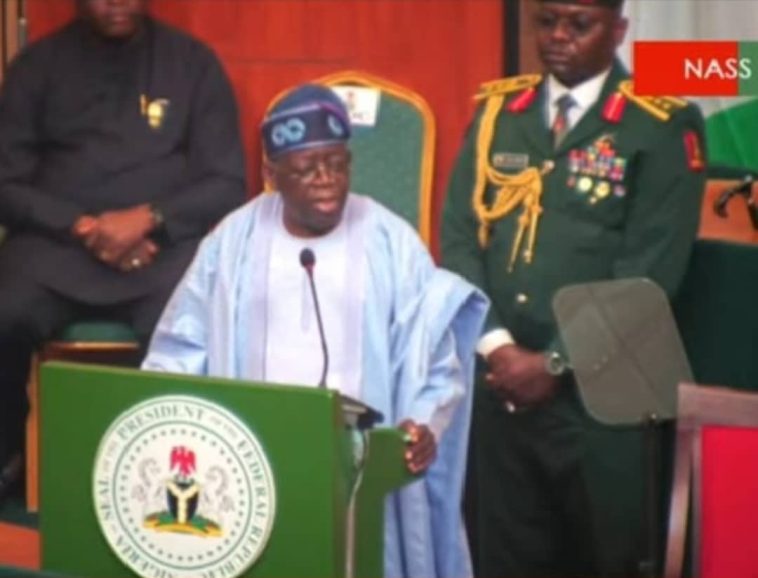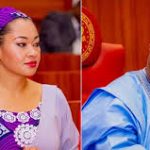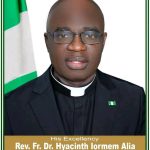By David Odama
President Bola Ahmed Tinubu Thursday told Nigerians that he would be the last Nigeria leader to advocate for one party system, declaring that he no intention of turn the country into a one-party state.
Hapeakung at while addressing the joint session of the National Assembly, Wednesday to mark Nigeria’s 26th year of uninterrupted democracy, Tinubu debunked what he called a “terrible rumor” that the ruling All Progressives Congress (APC) was working towards a one-party system.
“At no time in the past, nor any instance in the present, and at no future junction shall I view the notion of a one-party state as good for Nigeria,” he said. “I will be the last person to advocate such a scheme.
President Tinubu, who was a major opposition figure during the Peoples Democratic Party (PDP)’s dominance in the early 2000s, recalled how he resisted attempts by the then-governing party to entrench itself in power for half a century.
“In 2003, when the then governing party boasted of ruling Nigeria for 50 years, I stood alone. My allies had been induced into defeat, yet they could not control my destiny,” he recounted. “A greater power did not want Nigeria to become a one-party state back then. Nigeria will not become such a state now.”
Speaking directly to opposition lawmakers who accused the APC of attempting to swallow opposition parties, Tinubu offered a sharp rebuke saying ,I Will Not Help Your Sinking Ship.
We cannot blame anybody seeking to bail out of a sinking ship, even without a life jacket but I will not help you do so either. It is indeed a pleasure to witness you in such disarray.”
He, however, welcomed new members from Delta and Akwa Ibom States who recently defected to the APC, emphasizing that the party remains open to all.
“Nobody should close the door. Political parties fearful of members leaving should examine their internal processes rather than conjure demons that don’t exist.”
President Tinubu reaffirmed his belief in a competitive multiparty democracy as essential to national development.
Our efforts must never be to eliminate political competition, but to make that competition beneficial to national well-being,” he said, urging lawmakers to work across party lines on pressing national issues, especially economic reforms.
President Tinubu equally highlighted key achievements of his administration, especially in stabilizing the economy:
GDP growth of 3.4% in 2024, with Q4 recording 4.6%, Net foreign reserves increased five-fold, Exchange rate stabilized, Positive balance of payment and improving sovereign credit rating, Over 100,000 beneficiaries of consumer credit via the Nigerian Consumer Credit Corporation, including 35,000 civil servants and a new initiative to empower 400,000 youths with access to consumer credit from July 2025.
He also mentioned massive infrastructure plans, including a nationwide fiber-optic broadband rollout, aimed at enhancing connectivity and digital inclusion.
“This transformative step will revolutionize how businesses operate, how students learn, and how communities stay connected,” he said.
President Tinubu paid tribute to past pro-democracy figures, particularly those who fought during the military era. He acknowledged his predecessor, former President Muhammadu Buhari, for declaring June 12 as Democracy Day and honoring the presumed winner of the 1993 election, Chief M.K.O. Abiola.
We celebrate Chief M.K.O. Abiola as the central figure of June 12. But we must also honor others like Alhaja Kudirat Abiola, Pa Alfred Rewane, Chief Anthony Enahoro, Commander Dan Suleiman, Chief Abraham Adesanya, Chief Gani Fawehinmi, and journalists like Bagauda Kaltho,” he said.
He emphasized that the struggle for democracy was a pan-Nigerian effort, cutting across ethnic and regional divides.
The President also appealed to the legislature for partnership in strengthening democratic governance:
“Why we may not always agree, we must forge a way to work together because that is what democracy demands of us. I pledge myself to this cooperation and ask that you do the same for the good people of our country.”
Tinubu hailed the National Assembly for its role in key democratic moments, including the 2006 rejection of tenure extension, the 2010 Doctrine of Necessity that enabled Goodluck Jonathan’s ascension, and defiance during the military rule of General Abacha.






